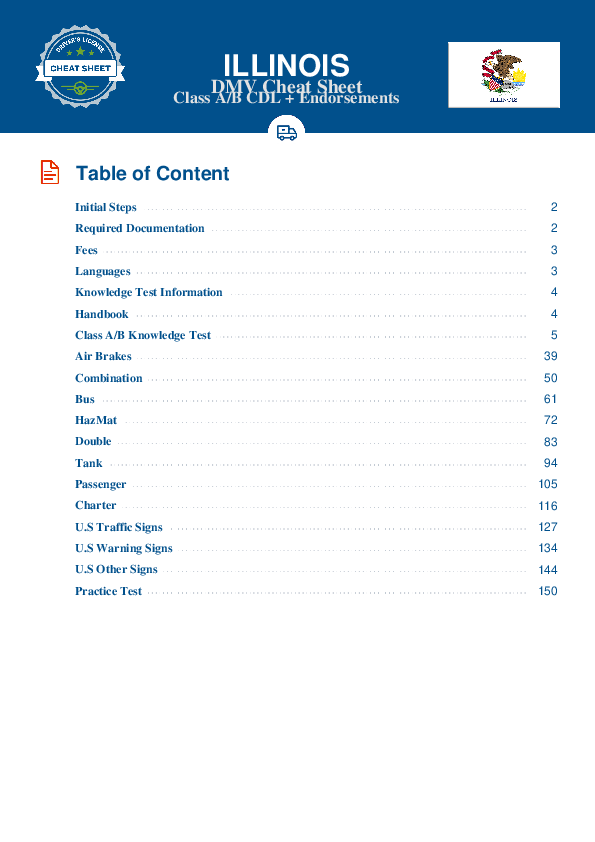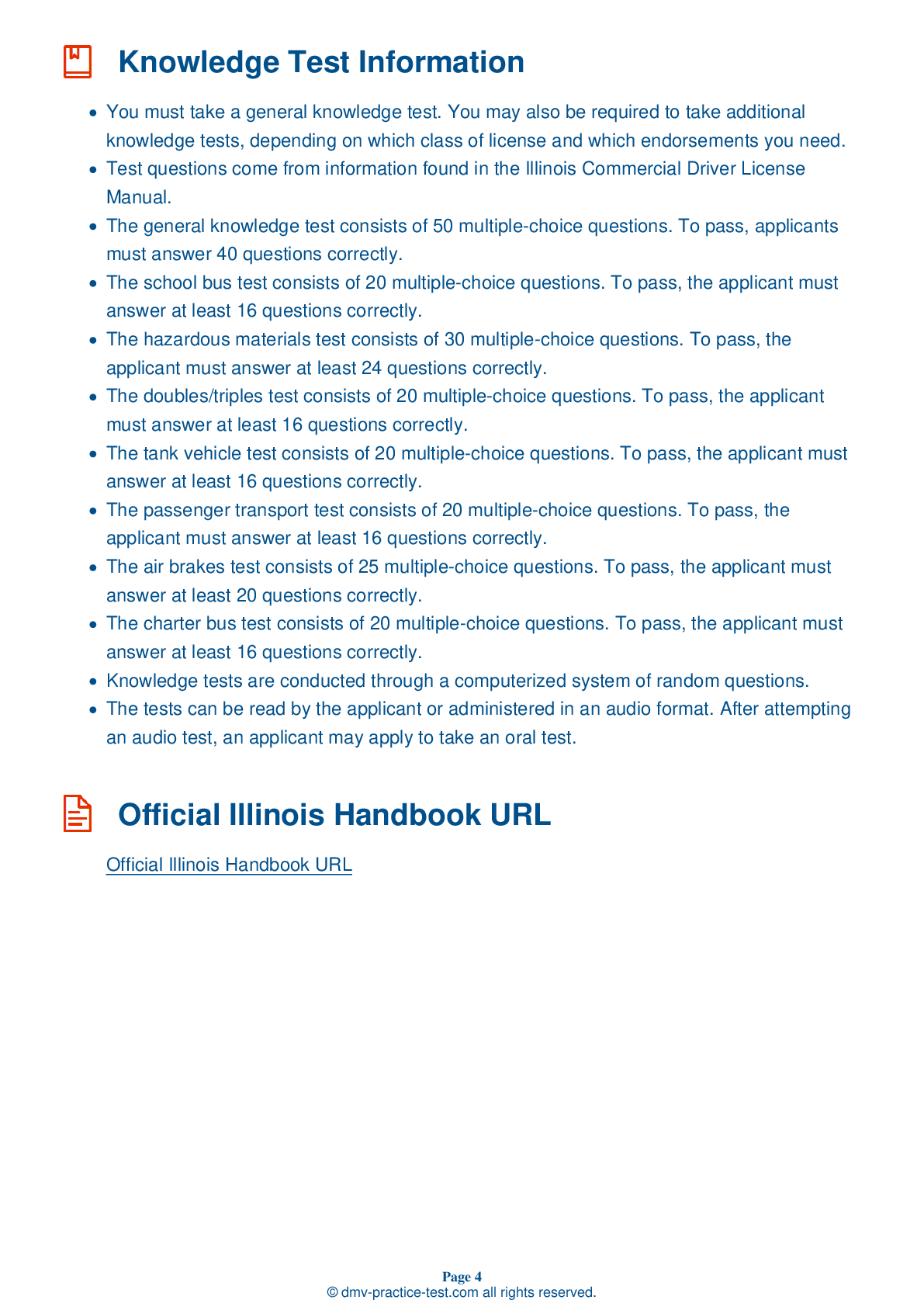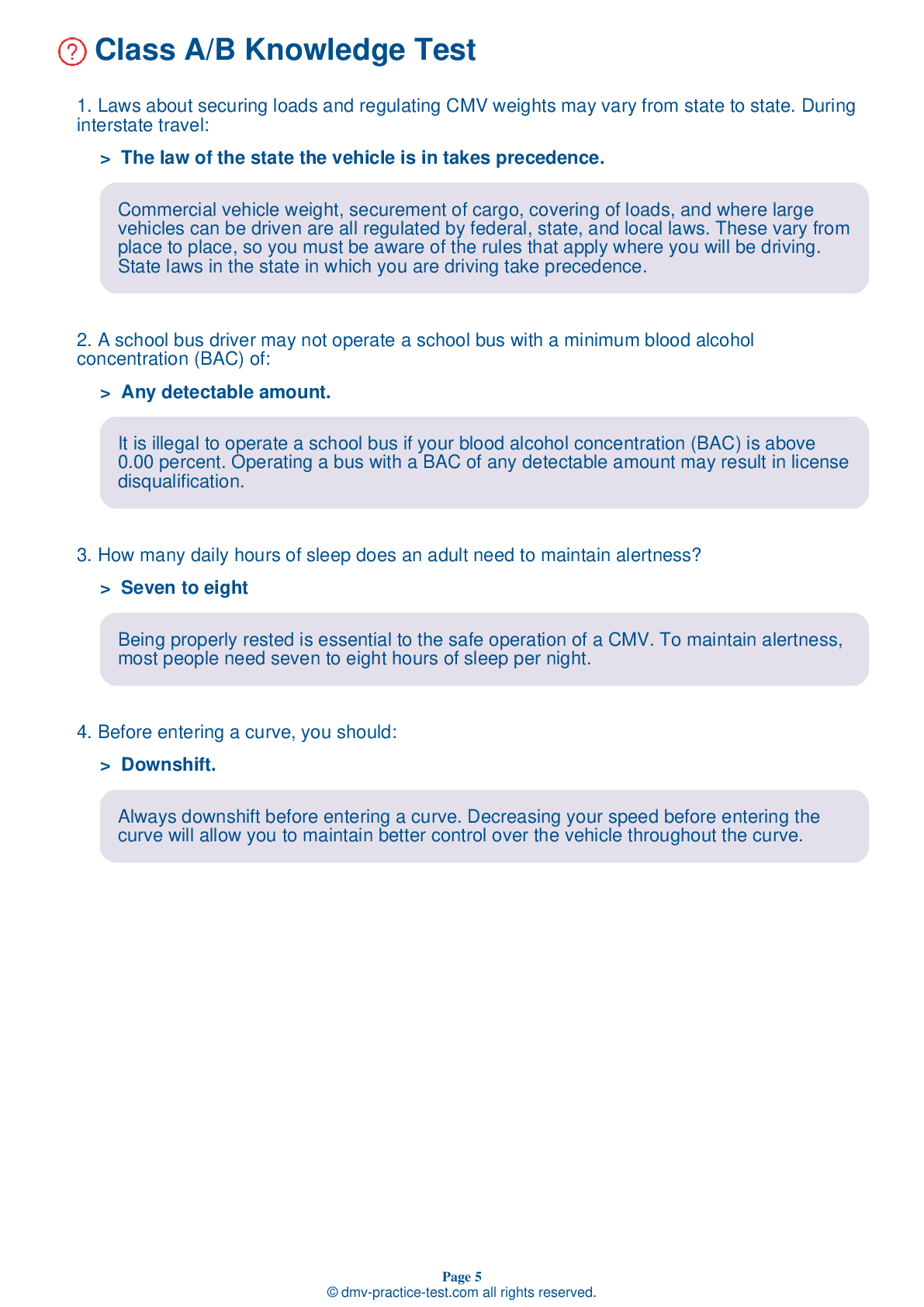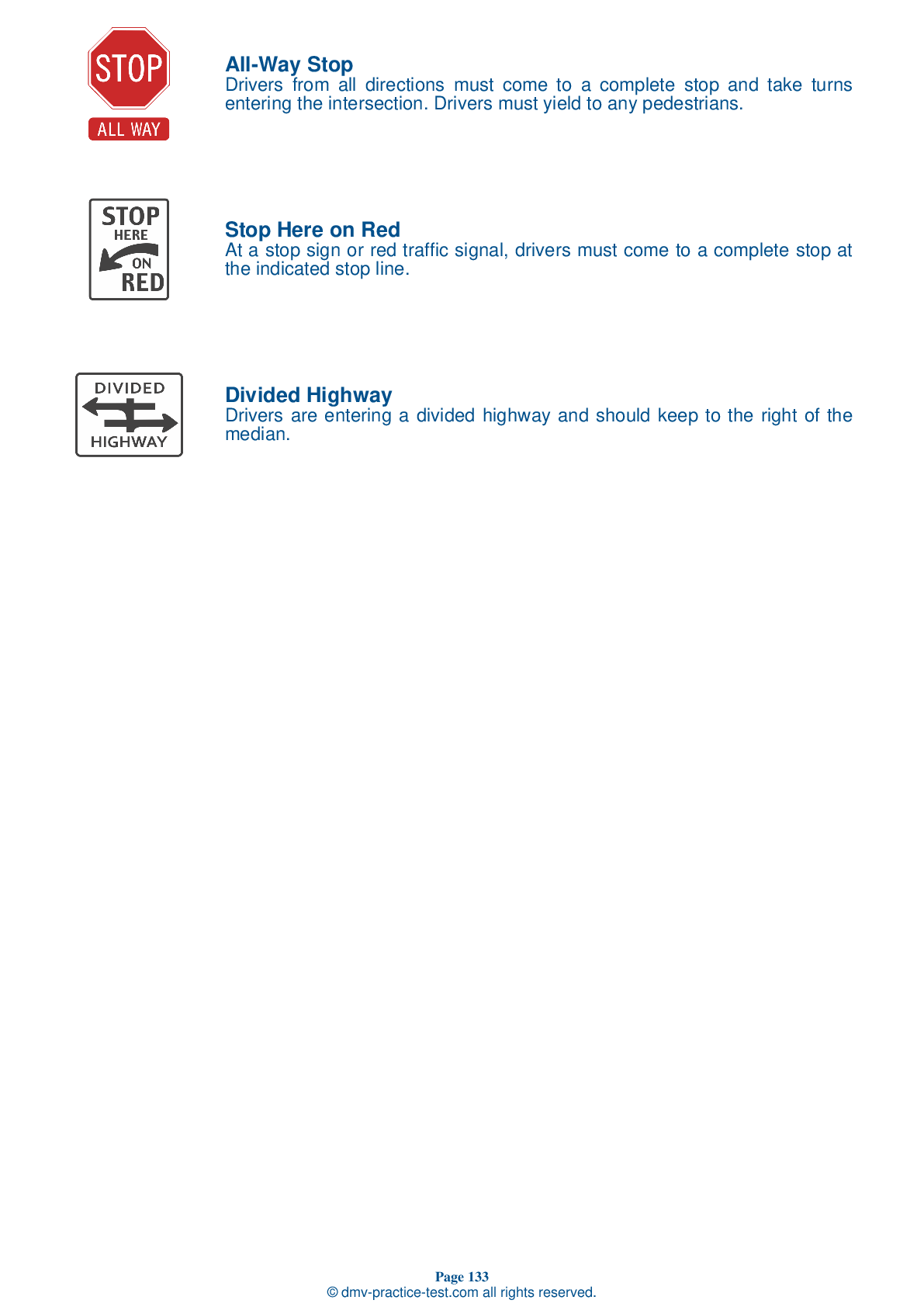Air Brakes Endorsement Test | Illinois 2026 #2 Page 4 of 4
Train for FREE online with our Illinois CDL air brake test. The official exam test consists of several obligatory parts, with all of them checking your knowledge of different blocks of road rules. If you need to obtain a IL Class A/Class B driver license in 2026, practice as much as possible. Free sample tests published on our website will help you check and improve your knowledge and boost your grades. Please bear in mind that the requirements for CDL may vary from state to state.
19 . To make a stop in a vehicle using air brakes, the driver should:
To make a normal stop in an air-braked vehicle, push the brake pedal down and control the pressure so that the vehicle comes to a smooth, safe stop.
20 . What does the air compressor governor do?
In an air brake system, the air compressor governor controls when the air compressor pumps air into the air storage tanks.
21 . Water and compressor oil are usually found in the compressed air within an air brake system. Water and compressor oil:
Compressed air in an air brake system usually contains a certain amount of water and compressor oil. The water and oil can damage the brakes if left to accumulate in the system. Manually operated air tank drains must be opened daily to remove this build-up.
22 . Emergency brakes:
All trucks, truck tractors, and buses must be equipped with emergency brakes and parking brakes. These brakes must be held by mechanical force.
23 . How is the parking brake released?
In newer vehicles with air brakes, the parking brakes are controlled by a diamond-shaped yellow knob. Pull the knob out to activate the parking brakes and push it in to release them.
24 . In a dual air brake system:
A dual air brake system is made up of two separate air brake systems. The systems share a single set of brake controls, but each has its own air tanks, hoses, and lines.
25 . If using air tanks with manually operated drains, how often should you drain the tanks?
To prevent the build up of oil and water in a vehicle's air tanks, manually operated air tank drains should be used at the end of each day of driving.
See the exact questions that will be on the 2026 Illinois DMV exam.
99.2% of people who use the cheat sheet pass the FIRST TIME
Lillian MCcranie explains how our CDL study guide was helpful in passing the exam and recommends it to everyone.
Cameron tells us how he purchased the CDL exam, and found it to be a useful tool which helped him pass the exam and find a job.



